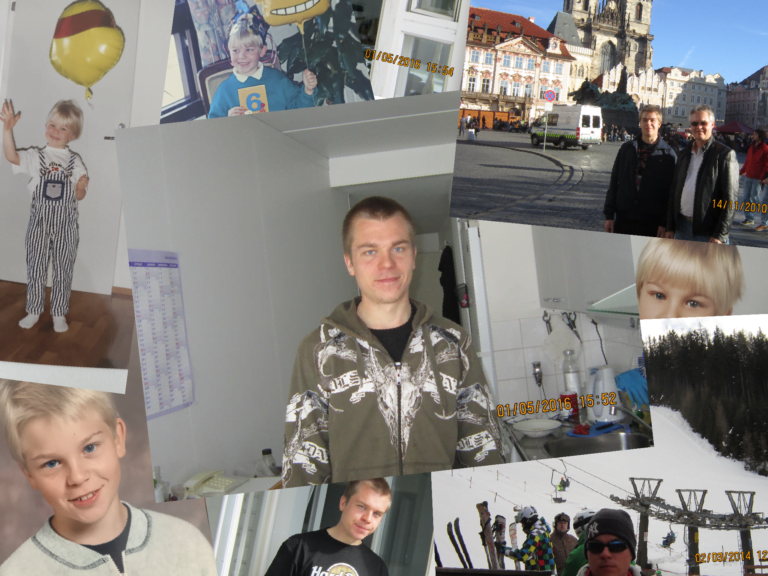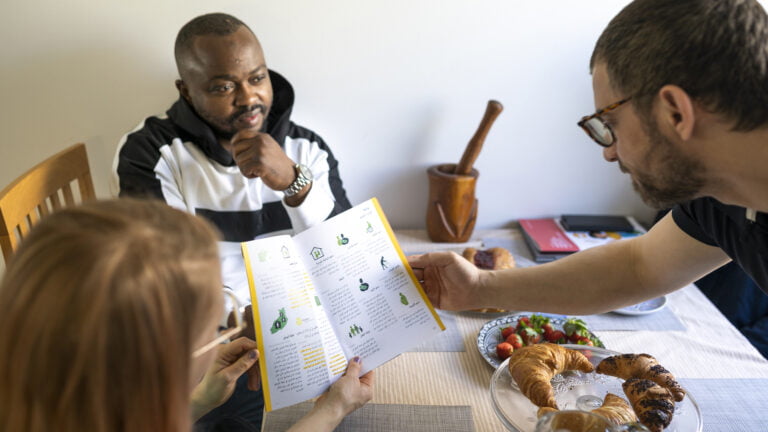15.6.2022
The right to housing: getting rid of the excuses not to guarantee it

Housing is a human right. Sadly, however, this does not mean everyone has the luxury of living in their own home. Homelessness work in its current state is not comprehensive enough. It requires reformation, not more excuses.
#Artikkelit
There are excuses, a whole array of them, that seem to prevent policymakers from guaranteeing the right to housing for all. On the one hand, there are nonsensical beliefs, such as “homeless people do not want help” and “there are other things we must do first.” On the other hand, there is sheer confusion or unclarity of roles: who are the actual duty bearers for those experiencing homelessness?
The Finnish government, led by Sanna Marin, has set a goal of eradicating homelessness by 2027, meaning that ending homelessness has become a nationwide task. Local governments must therefore create solutions in their own municipalities, which costs money. It is not simply enough to have a goal.
Empty the bath and close the tap – rapid rehousing and prevention
When working on social problems, such as homelessness, there are obvious expectations to deliver results. Our causal logic tells us that preventing or eradicating homelessness requires apartments. And yes, affordable housing is crucial. However, the issue goes further than that. Tackling homelessness requires more than just the provision of housing.
Numbers, zoning, and construction are not everything. We must look into the key question about housing: who is excluded from it and why. We must address the fears and cultural norms that may limit our chances of ending homelessness. Enhancing cooperation with local governments, service providers, and nonprofits can help achieve more. What we need is a shared vision, a coordinated effort to achieve set goals. I would say that, in Finland, we can give us thumbs up on this.
Conventional wisdom in the social sector suggests that homelessness work should be made up of at least three broad types of activities:
- Primary prevention. These are proactive steps to prevent homelessness from initially occurring. Various factors may contribute to one’s risk of homelessness. These factors include income loss, mental health or substance abuse issues, release from institutions (e.g., prison or a child welfare institution), being subjected to discrimination, and domestic violence. Policies and activities, which can reduce risks and thus prevent new cases from emerging, are very important to ending homelessness. We need primary prevention as much as services that help those who are already homeless to re-enter housing.
- Rapid rehousing. These are early interventions during the first spell of homelessness that help people live in their own homes again. This should happen quickly to minimize the ramifications of homelessness. These activities curtail the time spent homeless and assure that homelessness does not recur. The goal should be to prevent first-time homelessness from becoming episodic and long-term.
- Rehousing with support. These are activities that address situations wherein people have endured prolonged homelessness. In many instances, seeking to end long-term homelessness means supporting the retainment of housing to prevent homelessness from recurring.
A wholesome approach
Unfortunately, there is currently no solution that works for all. We need a wholesome approach, a framework of different activities that take different homelessness situations into account.
We need emergency relief. Homelessness is an emergency situation, which calls for activities that address urgent survival needs, including food, safe shelter, clothing, and crisis mitigation.
We need service delivery – services that answer to one’s basic needs. These can include Housing First accommodation, health care, trauma-informed care, housing advice, support for housing, harm reduction services, employment and income generation services, education, and community development.
We need policy and rights advocacy – activities that address structural issues relating to societal norms, public policy, and rights. Advocacy work tackles the root causes of homeless by advancing changes within social structures.
I believe that these above-mentioned homelessness prevention activities have the greatest chance of success if we merge them into a multi-year plan, supported by coherent leadership, adequate resources, and the participation of people experiencing homelessness. And these efforts should be backed up by public support and strong political will to ensure the right to housing.
No excuses
Homelessness is not a choice. No one chooses to live in a crisis situation: suffering from the lack of necessities, chronic exhaustion, deteriorating health, exposure to violence, and ruthless weather events.
Housing is a human right. It is not just a catchy slogan. It is clear that human rights impose some obligation on the state to ensure that the rights are respected, realized, and protected. Framing homelessness as a human rights violation can provide an extra moral imperative that the issue be effectively addressed.
Advocacy Manager, The Blue Ribbon Foundation
Pauliina Liukkonen
The right to housing is one of the three themes of the International Social Housing Festival. The Blue Ribbon Foundation Group is a partner organizer of the festival. The festival is from 14.- 17.6.2022 in Helsinki. https://socialhousingfestival.eu/


